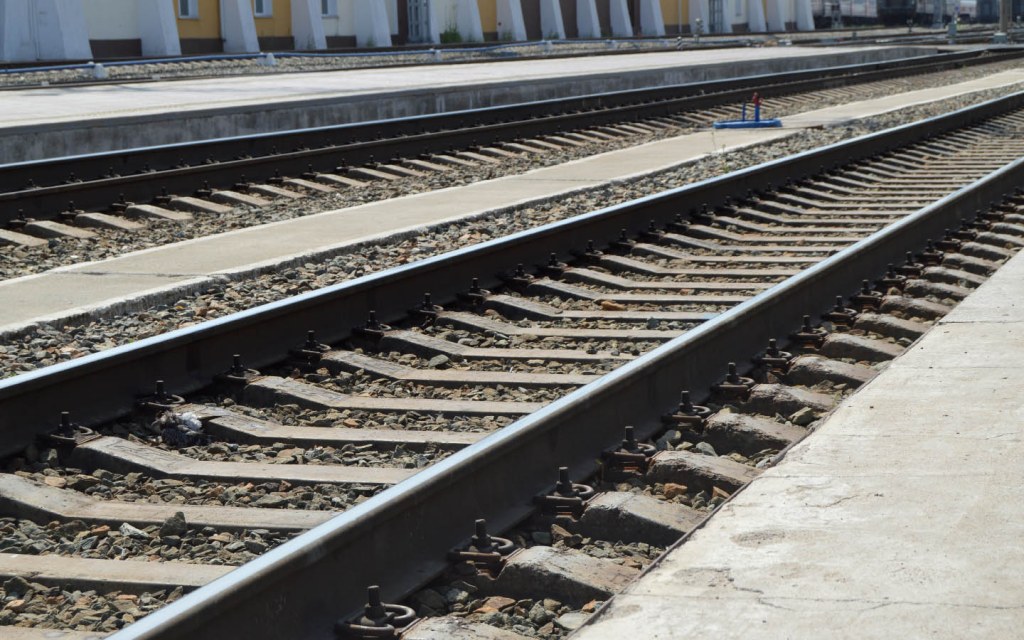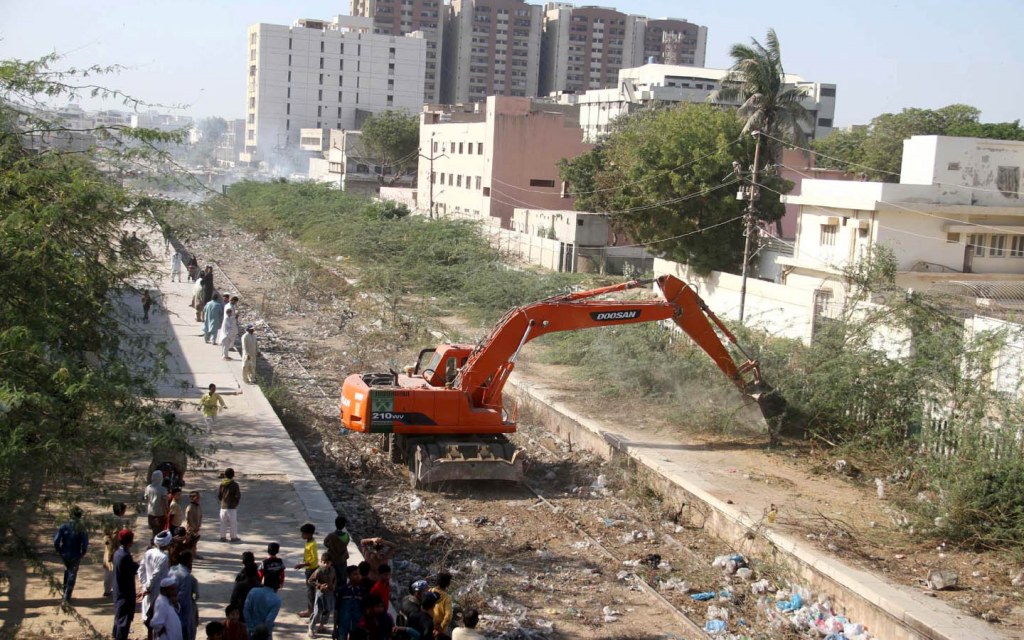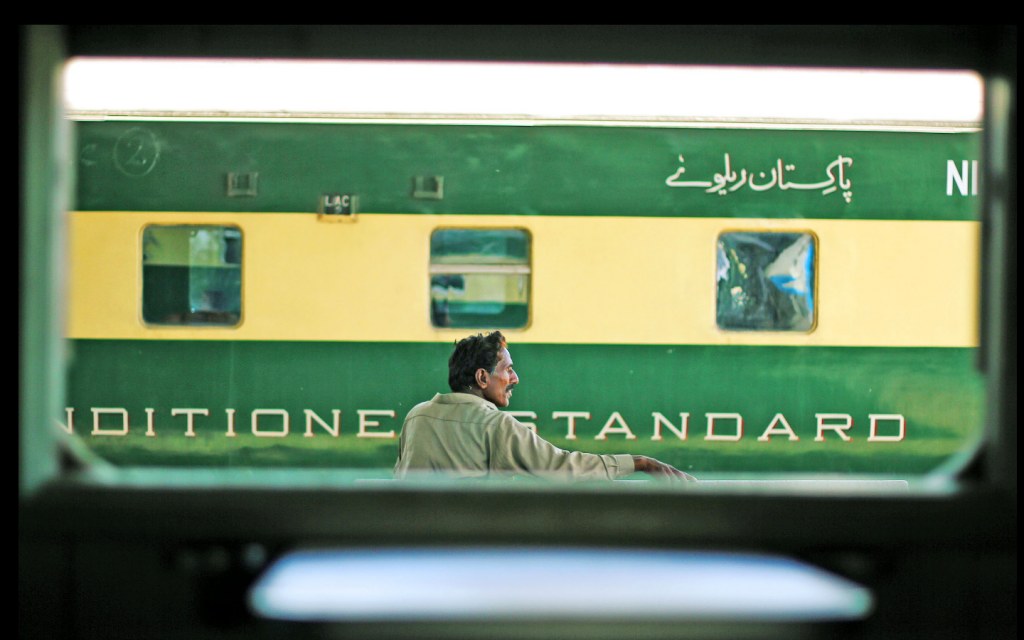Home » Construction » All You Need to Know About Karachi Circular Railway
Latest Updates on KCR
Karachi Circular Railway Timings
Karachi Circular Railway Route
Brief History of KCR
KCR Progress
Update (March, 17, 2022):
ECNEC Okays Escalated Cost of Karachi Circular Railway Project
The Executive Committee of the National Economic Council (ECNEC) in one of its high-level meetings in Islamabad has approved the Karachi Circular Railway (KCR) project, the total cost of which has been revised four times and is now PKR 201.572 billion.
This important ECNEC session was presided by the Federal Minister for Finance and Revenues Shaukat Tarin. The approval of the project funding was given on the basis of a comprehensive summary submitted by the Ministry of Planning, Development and Special Initiatives on the up-and-coming mass transportation system.
The Karachi Circular Railway’s Management Company (KCRMC) will be formed and given the authority to look after and manage all matters related to the development, maintenance and day-to-day operations of the project.
According to the official details, the upcoming KCR project would be based on a 43-kilometre dual-track rail mass transit system based on electric trains and 33 stations would be constructed along its corridor, connecting key localities in Karachi.
Aligning with the existing KCR route, the journey of this upcoming ultramodern rail network will commence from the Karachi City Station and run on the main Pakistan Railway line till Drigh Road. It will then cross Shahrah-e- Faisal, and enter into the locality of Gulistan-e-Johar and Gulshan-e-Iqbal via Karsaz. The KCR route will further pass through the old residential localities in North Nazimabad and Nazimabad. It will then enter the SITE area and link it further to the port. The KCR route will then loop back to Karachi City Station.
The construction period of this ultramodern transportation project is expected to be around three years and it would be funded on a Public-Private Partnership (PPP) basis. It was declared in the meeting that the main objective of introducing this project is to provide a swift, eco-friendly, reliable, and safe, public transport system to the citizens of the megacity.
Update (Sep. 28, 2021): Prime Minister Imran Khan has recently performed the groundbreaking of probably one of the biggest infrastructure projects based on the improvement of the Karachi Circular Railway (KCR) system in its history. The event took place on September 27, 2021.
The Frontier Works Organisation (FWO) would be laying the tracks for the new KCR system. The upcoming high-speed rail network is expected to significantly reduce the travel time between two points in the city, facilitating thousands of commuters on a regular basis. It would also result in reduced traffic congestion and solve many other transportation problems in the city.
PM Imran Khan was accompanied by Chief Minister of Sindh Murad Ali Shah, Federal Minister for Planning, Development, and Special Initiatives Asad Umar, Railways Minister Azam Khan Swati, and Governor of Sindh Imran Ismail among other key government officials who also attended the groundbreaking ceremony.
Update (Aug 27, 2021): In an official meeting to monitor the current operations and ongoing development work of the Karachi Circular Railway (KCR) chaired by the Federal Minister for Planning, Development and Special Initiatives Asad Umar, big announcements have been made regarding the recently-restored mass-transit system.
According to the news sources, the authorities are planning to transform KCR into a 43-km-long world-class affordable transportation project, which will be based on electric trains. A freight corridor will also be developed between Keamari and Pipri Marshalling Yard.
These infrastructure upgrades will also include the development of a dry port, also known as the Inland Container Depot (ICD), to smoothly run operations related to cargo management and transportation. As per the official figures, the upcoming Freight Corridor project is envisioned to handle up to 40% of the cargo meant to be transported to the other parts of the country.
Umar has already directed the railway authorities to start development work on the new and improved KCR infrastructure as soon as possible. The groundbreaking ceremony of the project is expected to take place in September 2021.
For more updates, make sure to keep checking back. In the meantime, if you want to learn more about the relaunch of the Karachi Circular Railway project, continue reading this blog.
Update (Feb 12, 2021): The Karachi Circular Railway has finally been opened to the public on Wednesday, February 10, 2021. After multiple test runs, KCR’s track that stretches 14 kilometers between Orangi and Karachi City Station is now operational. An attractive-looking train based on six coaches runs on this newly-opened track.
Update (November 20, 2020): The relaunch of Karachi Circular Railway (KCR)—the most awaited development of the year—finally happened on November 19, 2020. After months of efforts, a 14-kilometre section of the total 55-kilometre-long track of KCR has been cleared from encroachments.
According to the Ministry of Railway, with a nominal fare of PKR 30 per person, this mass transit project will currently cater only to passengers travelling between Pipri and Karachi City Station. Around four passenger trains will run on this route.
The ministry further stated that the work on the remaining sections of the KCR track is in progress and other routes will be launched in the later phase. A travelling pass worth PKR 750 will also be available soon for the passengers of KCR, which will allow daily commuters to make use of the service at subsidised rates.
Update (July 15, 2020): As per the latest updates on Karachi Circular Railway (KCR), the authorities are gearing up for the revival of the mass transit system. In the light of the directives from the Supreme Court of Pakistan, the first phase of the project will be completed.
It will be a 14-kilometre-long track, which is expected to be completed within two months. It runs from the City Station to Orangi Town. The renovation or construction of the railway stations along the route will also take place in this phase of development.
Karachi Circular Railway Timings
The first two trains of the day will depart from 7 am and 10 am from Orangi and Pipri Stations, simultaneously. Whereas, the other two trains will depart in the second half of the day at 1 pm and 4 pm, respectively, from the same stations.
Karachi Circular Railway Route
As discussed, in its initial phase of relaunch, KCR is currently running on a 60 kilometre route from Pipri to Orangi Station.
Why Karachi Needs a Robust Mass Transit System Like KCR?
A public transit system is one of the basic necessities of a city that is as big as Karachi, where millions of people are on the move every day. Unfortunately, the metropolis lacks a proper mass transportation system that causes a lot of trouble, especially for the working class in the city. However, there’s been a positive development recently. The Supreme Court and many higher government officials have reportedly expressed serious interest in Karachi Circular Railway revival (aka KCR).
A Brief History of Karachi Circular Railway
It all began in 1962 when then-President Ayub Khan suggested the use of the train to travel between two points in Karachi. Later, in 1969, the very first train of Karachi Circular Railway started its journey. The service was also meant to provide better means of transportation to the people living in the outer suburbs of the city. Initially, the KCR set off from Karachi’s City Station and ended at Drigh Road Station. After the 1970s, this railway line was extended numerous times in order to add more areas to its network of stations. However, due to monetary loss and some other unfavorable circumstances, this extremely useful transportation service was completely shut down for Karachiites in the 1990s.
KCR to Come Back on Track Soon!

The project of Karachi Circular Railway revival is expected to start soon. It aims to transform the older service into an effective mass transit system. Authorities mulled over improving and enhancing the already existing KCR, almost a decade ago, but the discussions yielded no results. The situation is a bit different this time around, as almost all of the concerned authorities seem determined to get started with the restoration process.
Bringing Railway Lines Back in Shape

One of the toughest challenges that the authorities have to face while restoring the KCR system is the process of clearing up the railway lines. At many places in Karachi, the existing KCR tracks, which were once an effective part of the city’s railway system, have now properties constructed on them. Since the land around a particular KCR track is the property of Pakistan Railways, all such settlements are considered illegal. However, Justice Gulzar Ahmed of the Supreme Court, in November 2018, ordered authorities to have all railway tracks cleared. The drive to clear up Karachi Circular Railway encroachment has already started.
Planned Infrastructural Improvements
Once the tracks are free from squatter settlements, the next phase would be the infrastructural improvements of the KCR system. Authorities plan to add a few new stations to the grid of railway lines that will run across the city. Improvement and maintenance work will also commence on almost all existing Karachi Circular Railway tracks since those have not been used in years. Granted, all these measures are time consuming, but these are important for the proper restoration of the KCR system in Karachi.
KCR and Karachiites
Having an effective public transit system is every Karachiite’s dream. An advanced and improved Karachi Circular Railway will provide relief to a lot of urban dwellers in the city. Residents had been using Railways for decades and would be even happier to use it again, given the current, rather abysmal, traffic situation. By travelling via Karachi Circular Railway on a daily basis, people would be able to save a lot of time and fuel, plus they would also avoid getting stuck in downright irritating traffic jams. Some major expressways of the city including University Road, Shahrah-e-Faisal and Korangi Road have nearby existence to the KCR route.
Preparation of Bogies for KCR

The Supreme Court of Pakistan has ordered local authorities to start preparing bogies for the project, along with instructions to expedite the anti-encroachment drive, mostly in the areas near train tracks that fall in the network of Karachi Circular Railway.
Local Train to Dhabeji Already Made It to the Platform
The last quarter of 2018 witnessed many important developments regarding the rehabilitation of the local train system in Karachi. The relaunch of Dhabeji Express turned out to be the most significant move in this regard. It was the last local train that was discontinued more than ten years ago. However, it has, once again, started blaring its whistle.
It takes almost two hours for Dhabeji Express to travel from City Station to Dhabeji Station in Thatta, while making multiple stops at Malir, Drigh Road and Bin Qasim Station. The return of Dhabeji Express on the city’s tracks has made Karachiites even more hopeful for the revival of Karachi Circular Railway.
*Cover Credits: The Official Facebook Page of Developing Pakistan



